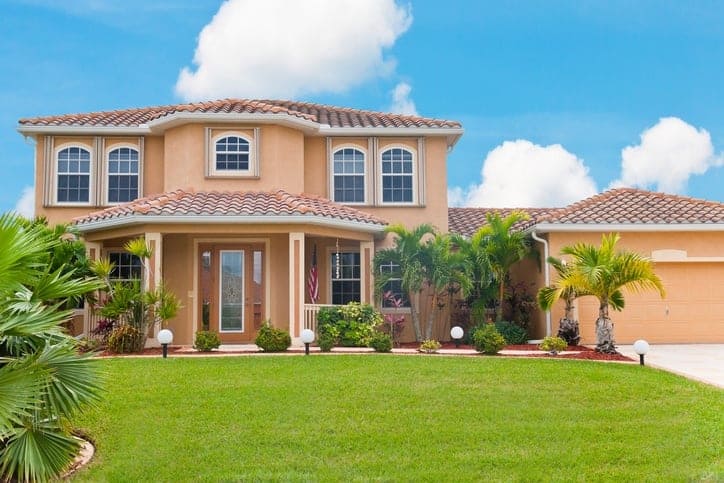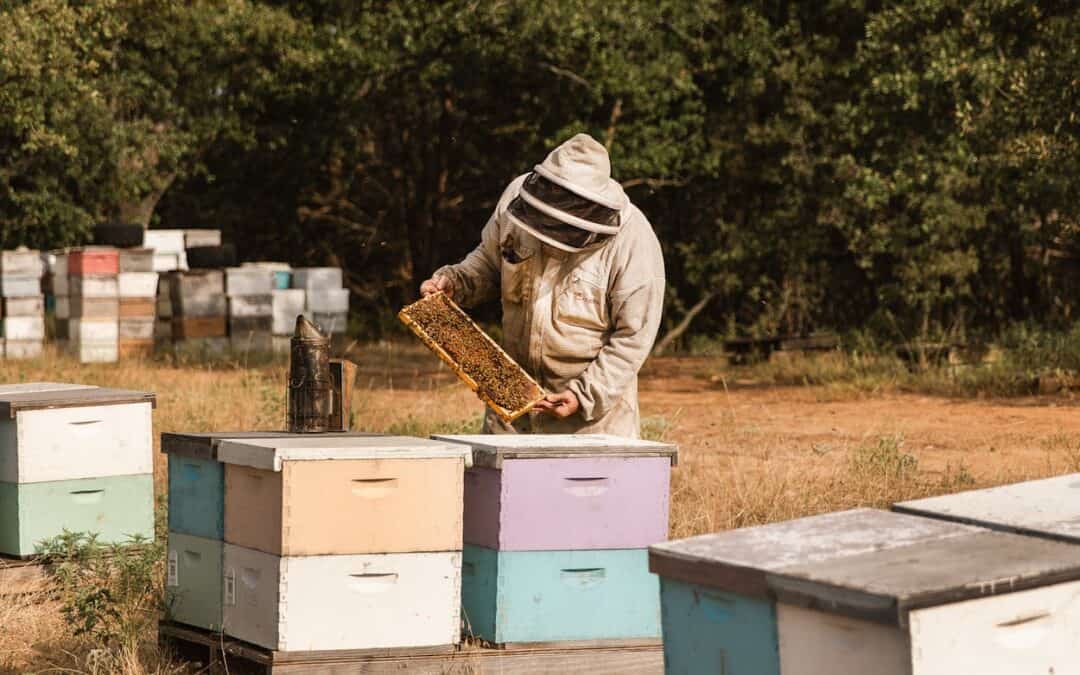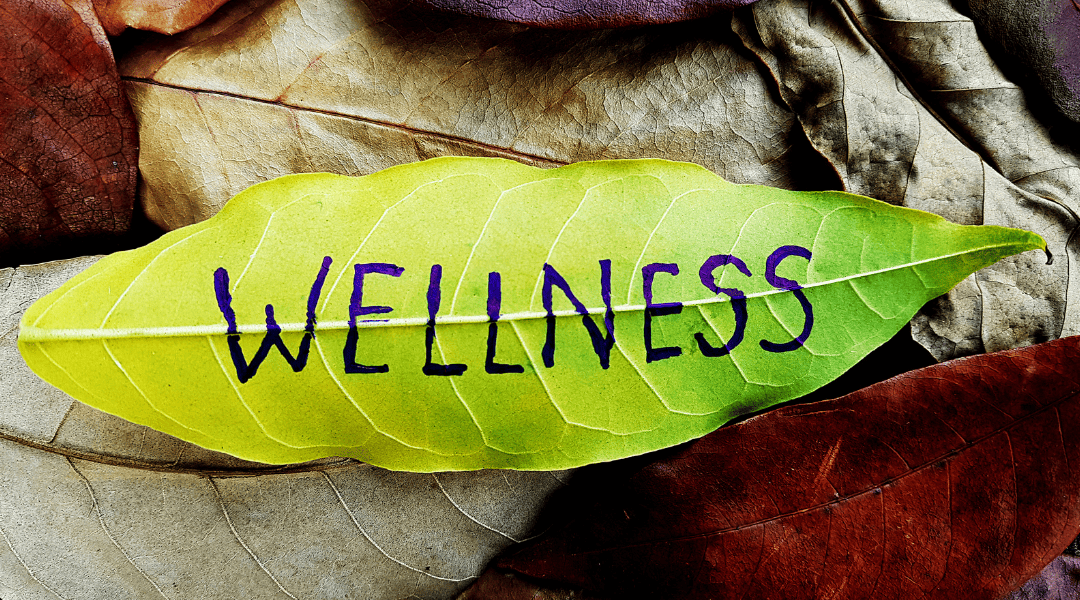READY TO GET STARTED?
REQUEST A FREE ESTIMATE
Fill out the form below or call (888) 466-7849 for a free, no-obligation estimate.

Cockroach infestations are a common issue for Newnan homeowners. These pests are more than just a nuisance; they can spread bacteria, trigger allergies, and contaminate food. With Newnan’s warm, humid climate creating the perfect conditions, it’s crucial to take proactive steps to protect your home.
The warmth and humidity in Newnan provide an inviting environment for cockroaches. They typically infest dark, damp spaces like basements, kitchens, and bathrooms, making them difficult to detect until the infestation has progressed. Common species in the area include German, American, and smoky brown cockroaches.
Cockroaches pose health risks by spreading pathogens such as Salmonella and E. coli. Their droppings and shed skin can also exacerbate allergies or asthma, making prompt and effective pest control essential.
Preventing cockroach infestations starts with making your home less appealing to these pests. Here are some key steps:
Cockroaches forage for food, so cleanliness is critical.
Cockroaches thrive in damp areas, so eliminate sources of excess moisture.
Block areas where cockroaches might enter your home.
Cockroaches love to hide in clutter. Keep your home organized and clear of piles of paper, old newspapers, and magazines to deter them. Opt for plastic storage containers instead of cardboard boxes, which can attract pests and give them a place to nest.
Green pest control is an environmentally responsible approach that uses low-toxicity solutions to manage pests. It’s just as effective but avoids the use of harsh chemicals, making it safer for children, pets, and the planet. Options include:
Green pest control not only eliminates cockroaches but also helps prevent future infestations while prioritizing the health of your home and environment.
Cockroaches are a persistent problem in Newnan, but they’re not unbeatable. By maintaining a clean, moisture-free, and clutter-free home while sealing entry points, you can make it difficult for these pests to move in. For more severe infestations, don’t hesitate to seek help from a professional pest control company that offers both traditional and eco-friendly pest control options.
Give us a call or click the button below to request your FREE estimate!

Living in South Florida means sunshine, beaches, and unfortunately—pests. The region’s warm, humid climate creates the perfect environment for insects and wildlife to thrive year-round. Whether it’s ants in your kitchen, termites in your walls, or mosquitoes in your backyard, pests can become a serious problem for homeowners and business owners alike. So when an infestation strikes, your first question is likely, “How do I choose the best pest control near me?“
In this blog, we’ll explore what makes a pest control company stand out, the types of pests commonly found in South Florida, treatment methods to expect, and the benefits of hiring a professional. By the end, you’ll know exactly what to look for—and what to avoid—when choosing a local pest exterminator to keep your property pest free.
Pest control is not just about killing bugs—it’s about protecting your home or business, your health, and your peace of mind. An ineffective or careless pest control approach can lead to recurring infestations, property damage, and even exposure to harmful chemicals.
Choosing the best pest control near you ensures that you’re getting expert knowledge, safe and targeted treatment options, and long-lasting results. Whether you’re dealing with a current pest problem or want to prevent one before it starts, the right pest control company can make all the difference.
With so many pest control companies offering their services in South Florida, it’s important to know how to evaluate your options. Here’s what to consider when choosing a provider:
Look for companies that have years of experience serving your local area. Read reviews on Google, Yelp, or the Better Business Bureau to see how past clients rate their services. A strong reputation is a reliable indicator of quality work.
Always ensure that the pest control company is fully licensed and insured in the state of Florida. This not only protects you but also guarantees that their technicians are trained and certified in safe application practices.
The best companies don’t just spray and leave—they offer a variety of solutions to address different pest issues. Whether you’re dealing with rodents, roaches, termites, or wildlife, a full-service provider should have specialized treatment plans for each type of pest.
If you’re concerned about your family, pets, or the environment, choose a company that offers eco-friendly pest control options. Many pest control services now incorporate green treatments that are just as effective as traditional chemicals but safer for your home and surroundings.
When searching for the “best pest control near me,” prioritize companies that are locally owned and operated. A local pest exterminator will be more familiar with the seasonal pest patterns and common pest species in South Florida, allowing them to tailor their treatments more effectively.
Top pest control companies stand behind their work. Ask about warranties, satisfaction guarantees, and follow-up services. Clear communication, responsive customer service, and transparency in pricing are all signs of a trustworthy provider.
South Florida is home to a wide range of common pests that can invade both homes and businesses. A reputable pest control company should be equipped to handle them all. Here are a few of the most frequent offenders:
From tiny sugar ants to invasive carpenter ants, these pests are persistent and often difficult to eliminate without professional help.
Subterranean and drywood termites cause significant structural damage if not caught early. Annual inspections and preventive treatments are essential.
Roaches are not only disgusting—they carry bacteria and can worsen allergies. German and American cockroaches are the most common in South Florida.
Known for spreading diseases like West Nile and Zika virus, mosquitoes are a serious outdoor nuisance in Florida’s climate.
Mice and rats can chew through wires, contaminate food, and multiply quickly. Integrated rodent control is a must in urban and suburban settings.
Wasps, hornets, fire ants, and venomous spiders like the black widow can pose health risks, especially to children and pets.
These blood-sucking pests are notoriously hard to eliminate. Professional heat treatments and thorough inspections are often required.
Top-tier pest control services offer a variety of treatment plans to target the specific pests in and around your property. These methods can be customized based on your needs, whether you’re dealing with a one-time issue or need year-round protection.
The best pest control companies use Integrated Pest Management, a science-based approach that combines prevention, monitoring, and control. IPM minimizes pesticide use and focuses on long-term solutions, making it ideal for environmentally conscious customers.
Many South Florida companies now offer green pest control options made with natural or low-toxicity ingredients. These eco-friendly products are especially useful in homes with children, pets, or sensitive individuals.
Bait stations are commonly used for ants, cockroaches, and termites. They attract pests to a food source laced with a slow-acting poison that’s taken back to the colony for widespread elimination.
Used for both indoor and outdoor applications, barrier sprays create a protective zone around your property to keep pests out.
For severe infestations—especially of drywood termites—whole-structure fumigation may be necessary. This is a more invasive option, typically requiring vacating the property for a few days.
To keep pests from coming back, many companies offer exclusion services that seal up cracks, gaps, and other entry points.
Routine pest control services ensure that pests don’t return. Many companies offer monthly, bi-monthly, or quarterly plans depending on your needs.
While DIY traps and sprays may work for a while, they often only address the surface of a much larger issue. Here are a few reasons why hiring a professional pest control company is the smart choice:
Not all pests are created equal. A trained technician can correctly identify the type of infestation and choose the most effective treatment.
Professionals don’t just treat the problem—they get to the root of it. This ensures that infestations don’t reoccur a few weeks later.
From using child- and pet-safe products to proper handling of hazardous chemicals, professional services reduce health risks to your family or employees.
While DIY solutions may seem cheaper initially, recurring infestations can cost you more in the long run. Professional pest control saves you time, stress, and money.
Knowing your home or business is being protected by experts gives you the confidence to focus on what matters most.
Whether you’re a homeowner dealing with ants in the kitchen or a business owner concerned about rodents in your restaurant, the best pest control near you should deliver:
Thorough inspections of your property
Customized treatment plans based on your needs
Transparent pricing and clear explanations
Regular maintenance options to stay pest free
Friendly, professional service every time
Look for a pest control provider that understands the unique needs of both residential and commercial properties in South Florida.
Finding the best pest control near you isn’t just about hiring someone with a sprayer—it’s about partnering with a company that truly cares about protecting your property. Look for a local pest exterminator with a strong reputation, a wide range of services, eco-friendly options, and a dedication to customer satisfaction.
Don’t wait until pests take over your home or business. Whether you’re battling a current infestation or want to prevent one in the future, a proactive approach with the right company will keep you pest free all year long.
Let us help you reclaim your space from unwanted pests. We proudly serve homes and businesses across South Florida with safe, effective, and affordable pest control solutions.
Call or click the link below to request your FREE quote today and discover why we’re the trusted choice for pest control in your neighborhood.

Living in Pompano Beach means enjoying warm weather year-round, but it also comes with dealing with seasonal pests. The city’s tropical climate creates perfect conditions for pests like mosquitoes, termites, ants, and rodents. Here’s how to protect your home effectively, regardless of the season, with pest control near me.
Pompano Beach’s humid weather and lush surroundings make it an ideal breeding ground for pests. Each season brings its own challenges:
Knowing these patterns can help you take proactive measures to stay pest-free.
Professional pest control services can provide tailored solutions for Pompano Beach pests, using targeted, eco-friendly treatments to address infestations effectively.
Consistency is key to keeping your home comfortable and pest-free. By combining preventative measures with professional expertise from pest control near me, you can tackle seasonal pests and enjoy peace of mind in every season. Reach out to a local Pompano Beach pest control expert today for customized solutions and a pest-free home!

If you’ve discovered a buzzing colony of honeybees on your property, you might be wondering what to do. Don’t worry—there’s a way to handle this situation that protects both your home and these important little pollinators! Honeybee relocation is a great solution, and local beekeepers are key to making it happen.
Honeybees are vital for pollinating plants, which helps flowers bloom and fruits and vegetables grow. But sometimes, they end up in places that aren’t ideal for homeowners. This is where beekeepers step in to relocate the colony, giving the bees a better location while ensuring your property is free of concerns.
Here’s why local beekeepers play such an important role in this process and how it benefits homeowners like you.
Honeybees play a huge role in our environment. They pollinate about one-third of the crops we eat, including fruits, vegetables, nuts, and more. Without them, plants wouldn’t grow as well or produce as much food.
However, as urban areas expand and natural spaces shrink, honeybees sometimes end up building their hives in places like walls, attics, or trees near homes. Relocation protects their colonies and ensures they can continue their important work elsewhere, away from high-traffic areas or living spaces.
Beekeepers are experts in handling honeybee colonies. Their knowledge and care make relocation possible while keeping the bees healthy and productive. Here’s how they help:
When honeybee colonies need to be relocated, local beekeepers and pest control professionals often team up. Here’s what the process looks like:
Choosing honeybee relocation not only solves the immediate problem of a hive on your property but also helps the environment in several ways. Here’s how you benefit:
Honeybees are facing growing challenges like habitat loss and pesticide use . The work of local beekeepers in relocating hives is crucial for supporting bee populations. Without honeybees, we risk losing countless plants that depend on them, from garden flowers to crops that feed our families.
By choosing relocation over extermination, homeowners can make a big difference. It’s a simple decision that protects the bees, your property, and the environment.
Next time a hive appears near your home, remember that local beekeepers are here to help. They’re not just moving bees—they’re protecting pollination, promoting agriculture, and contributing to a thriving planet. Together, we can all do our part to support these incredible pollinators and keep our communities blooming. If you find a hive on your property, reach out to honeybee experts to responsively relocate the bees and protect your space, all while supporting a healthier environment.

Are pests intruding on your peaceful home while leaving you concerned about the environment and your family’s well-being? For homeowners in Fort Myers, the solution is simple and sustainable—green pest control. This eco-friendly approach to pest management is not only better for your health but also helps protect the environment, local ecosystems, and future generations.
This comprehensive guide explores why so many Fort Myers homeowners are making the switch to green pest control. From guarding your indoor air quality to promoting a healthier community, you’ll learn all the compelling benefits of choosing eco-conscious pest management solutions.
Green pest control refers to pest management methods that use natural, environmentally less-toxic products rather than traditional chemical pesticides. This eco-friendly alternative combine prevention strategies, non-toxic pest repellents, and sustainable practices to deliver effective results with minimal harm to people, pets, and the planet.
Now, let’s dive into why these sustainable pest control methods are gaining traction with eco-conscious homeowners in Fort Myers.
One of the most significant advantages of green pest control is its reliance on natural ingredients, which significantly reduces its environmental impact. Traditional pest control often employs harsh chemicals that linger in soil, water, and air, posing risks to non-target organisms such as birds, beneficial insects, and plants.
By using eco-friendly alternatives you can ensure that:
Fort Myers homeowners who choose green pest control are not only protecting their homes but also taking meaningful steps to preserve Florida’s lush natural ecosystems.
Did you know that some traditional chemical pesticides can compromise the quality of indoor air, leaving harmful residues that may take days or even weeks to dissipate? Residual chemicals can irritate respiratory systems, trigger allergies, and exacerbate chronic conditions like asthma. For families with children or elderly members, these risks are especially concerning.
Non-toxic pest control products are crafted to eliminate pests effectively without harming your home’s air quality. By switching to these less-toxic solutions, you can create a smarter, healthier living environment for everyone in your household.
While traditional pest control methods may offer quick fixes, they often fail to address the root causes of pest infestations. Green pest control, on the other hand, emphasizes prevention and sustainable solutions.
This proactive approach ensures fewer pests over time, leading to reduced treatment costs and long-lasting peace of mind.
Florida is blessed with diverse and delicate ecosystems. However, chemical pest control disrupts this balance, often killing beneficial insects such as bees, ladybugs, and butterflies. These organisms play critical roles in pollination, pest control, and maintaining the health of local flora.
Fort Myers homeowners recognize the importance of protecting these ecosystems, and green pest control allows them to contribute to the conservation of their community.
By switching to green solutions, you’re prioritizing what matters most—your family’s health, your home’s integrity, and the environment you cherish.
By making green pest control a part of your home management plan, you’re joining a growing community of environmentally responsible homeowners shaping a healthier future.
One of the biggest perks for Fort Myers residents choosing green pest control is the peace of mind it brings. Knowing that your pest management methods are eco-friendly, healthier for children and pets, and sustainable for the planet allows you to rest easy. You can trust green pest control to deliver results without sacrificing well-being or ethics.
If you’re ready to take the first step toward a healthier, smarter home, reach out to your Fort Meyer’s local team of pest control experts today. Together, we can help you create a pest-free environment while staying true to your values.
Because when it comes to your health and the environment, green is always the smarter choice.